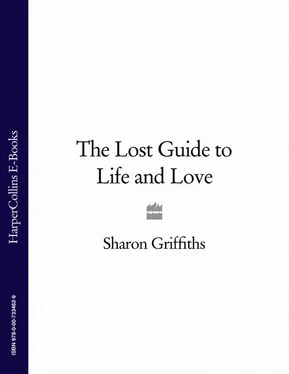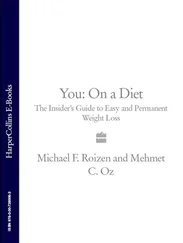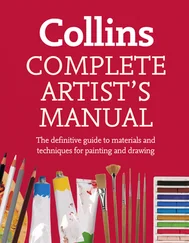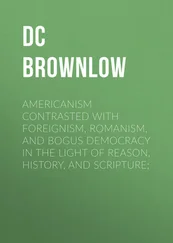‘These are really very good,’ I said as the juice spurted sweetly in my mouth. ‘They taste of sunshine.’
Bill’s face brightened. ‘Yes, they do, don’t they? They’re from a new supplier. Tell you what…’ He picked up a generous handful of the tomatoes and popped them into a paper bag. ‘Give these to your mother, with my love. And I’ll email you some suggestions for those foodie pieces.’
‘Right. I’ll give them to her and I hope they bring you luck.’
I gave him a hug and a kiss and set off with the usual mixed emotions to meet my mother, Frankie Flint…
Yes, that Frankie Flint, Fairtrade Frankie, the one who set up the chain of coffee bars. You’ll probably have heard of her. She’s always in the papers. There’s even talk of making a film about her.
About how Frankie Flint and her husband Theo started a tiny little restaurant making delicious food so even though the chairs creaked and the tables wobbled it was quickly a huge success. Critics enthused about it, famous people ‘discovered’ it. Their friend Bill came in as a partner to help them. The day they had their first rave reviews in the colour supplements they held an impromptu party at Theo and Frankie’s house. In the middle of the afternoon, Theo popped back to the restaurant to get some more food and wine. He took Josh, their two-year-old son, with him.
And in the middle of a sunny Sunday, on an almost deserted road, a drunk driver, just nineteen years old, jumped the lights and rammed straight into their car. If Theo himself had not had a couple of glasses of wine, he might have seen it coming and avoided it. Maybe. Maybe not. But he didn’t. Theo and the other driver died instantly. Baby Josh lingered on before he, too, died three weeks later. I think my mother would have liked to have died, too. But she had her daughter, me, aged five, to look after.
Years later, probably when I was about ten, I came across a photo tucked into a book at home. It was a typical holiday snap of a family sitting around a café table in the sunshine. Father with a baby boy perched on his shoulders, a small chubby girl in big sunglasses reaching up to drink from a straw in a perilously tilted glass, and a young woman with long flowing hair laughing at the camera, eyes slightly screwed up in the sunlight, nothing more to worry about than the chance of some spilled orange juice.
‘Who are they?’ I asked my mother, who had gone pale at the sight of the picture.
‘That’s you,’ she said, pointing to the chubby toddler. ‘And your dad, and Josh, the year we went to France.’
‘But who’s that ?’ I asked, pointing at the laughing woman.
‘That’s me,’ said my mother. ‘You won’t recognise me because I wore my hair long then.’
But that wasn’t why I didn’t recognise my mother laughing in the sunshine. It was because in the five years since the accident, I had never once seen my mother laugh.
After my father and brother died, I think my mother must have had some sort of breakdown. Understandable really. But somehow she emerged and set up a new business. Energised and determined, she wanted to give people an alternative to pubs and bars, so she set up Frankie’s Coffee Shops.
Long before Starbucks, Mum took the 1950s coffee bar and reinvented it. At a time when Britain was desperate for decent coffee, she provided it, and a great place to drink it too. Her cafés had armchairs and newspapers. Bigger branches had rooms with TV screens and table football and a jukebox and opened until late at night. They served soup, snacks, sandwiches and cakes but never, ever, alcohol. Still don’t. But, despite that, Frankie’s coffee shops are cool. She found the knack of appealing to all ages and all types. In the daytime it was the sort of place you could meet your granny, while at night you didn’t have to apologise for suggesting a Frankie’s Coffee Shop on the way home from a movie.
What started as a little, hippyish establishment soon grew. She set up franchises—very strictly controlled—until there were Frankie’s Coffee Shops in most big towns. My mother had always been the business brain when she and Theo and Bill had their restaurant, and now she went into overdrive. She often said, ‘ Work is the best medicine , as Granny Allen used to say.’
Don’t get me wrong. Frankie wasn’t a bad mother. Not at all. It was almost as though she was trying so hard not to smother me that she left me almost too much alone. She didn’t want to get too close to anyone any more, not even me. And certainly not Bill.
In any case, her business took huge amounts of time and energy. And because it was such a novelty—ahead of its time, fairly traded and organic—she was always in the newspapers, on radio and television, commentating on this, that and the other. She was the absolute model of the perfect business, the perfect employer, the perfect ethical entrepreneur. What’s more, she talked well and passionately, looked stunning and stylish and even made a profit—most of which, needless to say, was ploughed back into good causes. She was a one-woman retail phenomenon.
But all that didn’t always make her easy to live with. Hard-working, high-minded, high-achieving, successful mothers with high moral standards and an insatiable work ethic aren’t always the best flatmates for day-dreaming, chaotic teenage girls with a serious shoe habit and a pathological desire to sleep till lunchtime.
Frankie’s New Road branch is aimed at ladies who lunch. It has huge squashy sofas, piles of glossy magazines and walls decorated with fashion ads. It is light and stylish and welcoming. And, as always, very busy. The place buzzes with chatter and is a glow of colours and good smells.
There, tucked in the corner in her trademark black, is my mother. She has a phone to her ear and a pile of papers in front of her. She likes to take her work round to the various coffee shops and work in the middle of it all, so she can see what’s going on and her staff and customers can talk to her. It’s another reason the media love her.
I bend over to give her a quick hug and kiss. As always, she makes me feel large and awkward. My mother apparently takes after her father’s family and is small-boned and neat. She says I have inherited characteristics from her mother’s family and that’s why I’m so tall with enormous feet. Still on the phone, she gives me a quick acknowledgment as I sit down and order a smoothie—apple, pear, ginger and beetroot. Beetroot? I have to try it. When it comes, I sip it tentatively, then with more enthusiasm. Mmm, yes, it works. As I lean back, untangling the different flavours on my tongue, I watch my mother as she discusses a problem at one of the branches. The lines round her eyes I am used to. They’ve been there from the time my father and brother died. Maybe it’s the light, but today they seem deeper. The black, stylish as it is, does little to flatter. Sorrow had aged my mother when she was young, but now she’s fifty and age is beginning to do its bit as well. She is as smart as ever but there is, I realise sadly, a hardness about her.
She finishes her call. ‘Sorry about that, darling, but you know what it’s like.’ And I do, I do. ‘Do you mind eating here? They have some wonderful fish soup today. And the new bread is delicious.’
So we sit there and have the fish soup, thick and creamy with lots of mussels. I dig each one out with the shell of another and lick the creamy, lemony sauce from my fingers. It’s all very good. But my mother’s eyes are constantly darting hither and yon, watching the staff, watching the customers, thinking, considering.
‘Oh I forgot,’ I say suddenly, producing the little bag of tomatoes, ‘Bill sent you these.’
She looks into the bag and closes it up again without taking any of the tomatoes. ‘And how is Bill?’ she asks politely.
Читать дальше












